SKU:
-
SHARE:
The Sealant Saver was developed by a cabinet maker to prevent caulking tubes from drying out. Simply fill the tube with water and place open caulking tube down into the Sealant Saver tube. The Sealant Saver creates an air tight seal that prevents caulk or silicones from drying out. It easily mounts with screws to any surface.
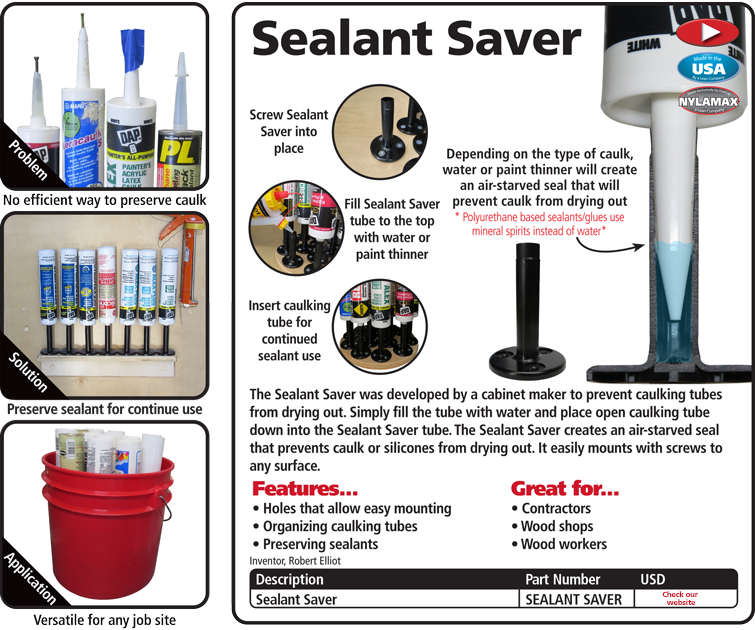
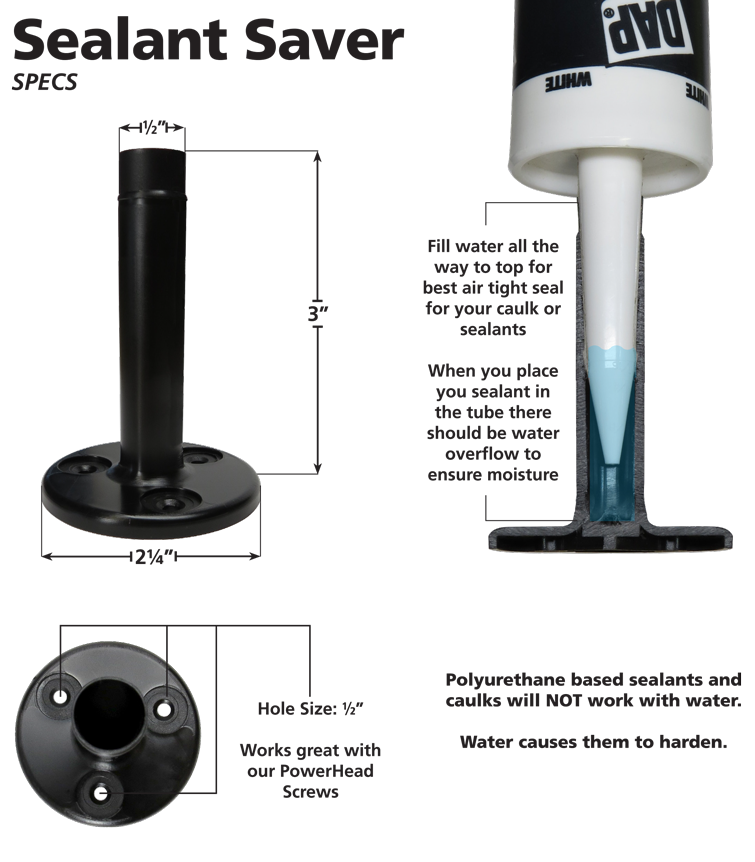
What about polyurethane-based sealants or glues? Wouldn’t that cure in the water?
Yes, it would. You could try using something like mineral spirits instead of water which may not cure it but accomplish the same goal!
How do you clean out Sealant Savers?
It will depend on what type of sealant you are using. Some you can rinse. Some you can't clean. My experience is they don’t tend to get dirty if you use them right.


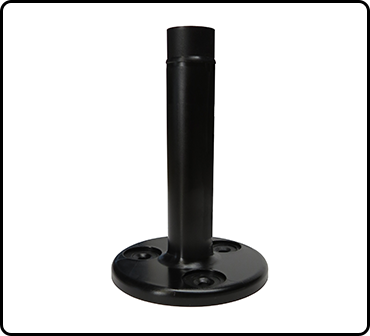
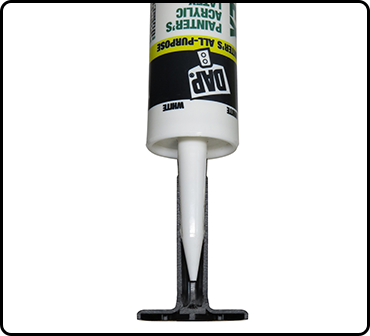
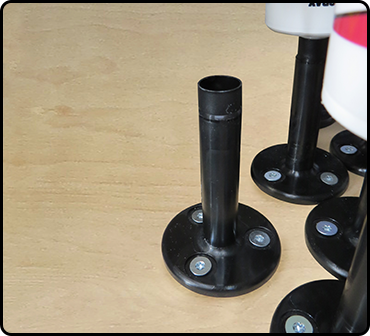
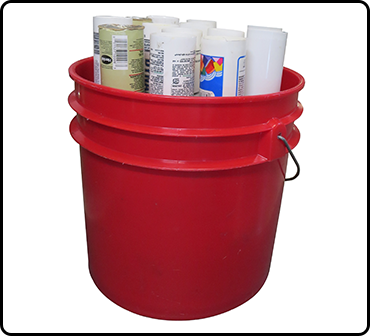
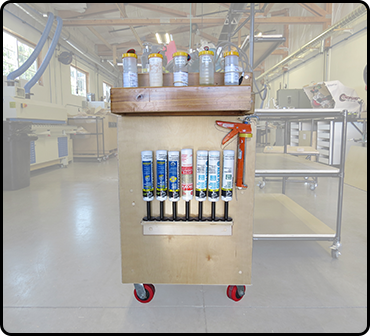
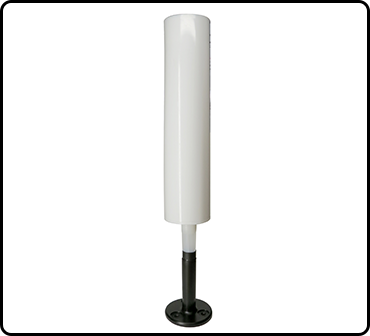
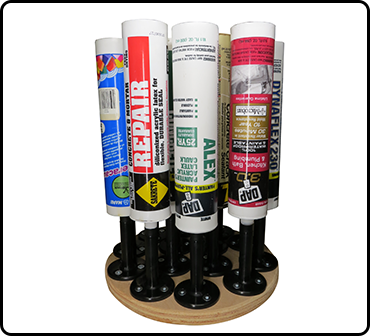

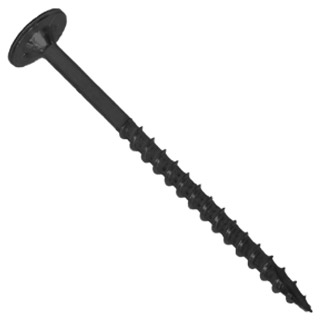
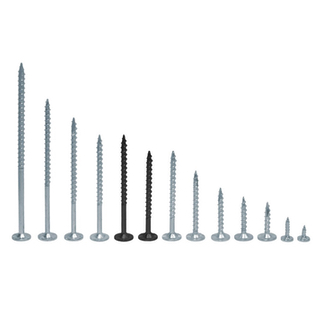
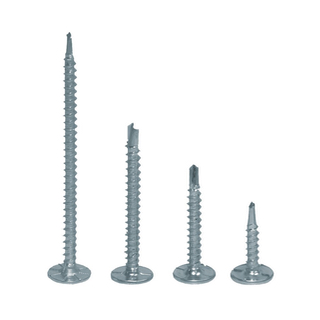
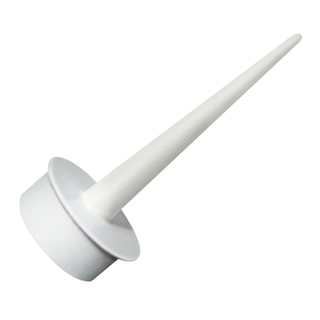
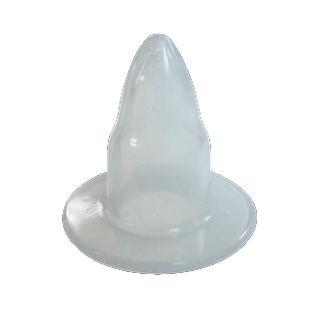
.jpg)
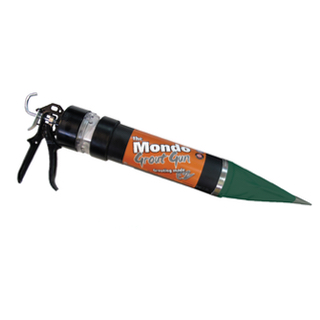
super useful, but take care
These really do work well. Use water for latex sealants/caulks, mineral spirits for polyurethanes/silicones/etc. The only negative is that the rim is somewhat fragile and prone to breaking. I made the mistake of lightly pushing the tube down to give a snug fit. Big mistake. It took me two breakages to learn. Set it in there gently and just let gravity do its thing. They really are worth it.
This works for silicone?
I don't understand how this could work for silicone or other moisture cure sealants. For water or solvent based, it makes more sense. What am I missing?
Response: Try using something like mineral spirits instead of water which may not cure it but accomplish the same goal!
Concerns
How long does the water stay in there without evaporating? would I have to check it every so often if I don't use it on a regular basis? not sure
Response: So long as a tube is inserted, the water should be sealed in there and not evaporate. When caulking is in use and the water is open to the air however, it will slowly evaporate. The rate at which it evaporates will depend upon the external environment it is in. The tube when filled needs about 1 teaspoon (5ml) of water to function properly.